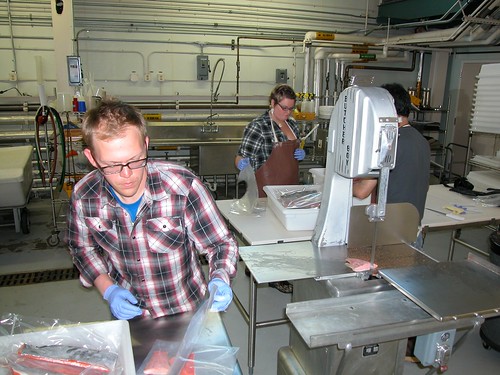
This post is part of the Science Tuesday feature series on the USDA blog. Check back each week as we showcase stories and news from the USDA’s rich science and research portfolio.
And they will have skills to last a lifetime. When it comes to aquaculture, many teachers know diving into the business with hands-on training is the way to build students’ skills. USDA has provided some of these educators funding to turn fish tanks into classrooms with excellent results.
Bryant High School, located in southwest coastal Alabama, established an aquaculture program when the school opened in 1998. Using funding from USDA’s National Institute of Food and Agriculture (NIFA), they have created a working redclaw crawfish aqua-business.
“Our students don’t just do aquaculture – they learn every step in the operation and maintenance of a bona fide operation,” said Julian Stewart, who received $70,000 from NIFA’s Higher Education Challenge Grant Program. “Our current project seeks to take things one step further. We want our students to realize that they do not have to settle for being a manual laborer or even a foreman at an agri-science facility – they can be the chief scientist if they challenge themselves.”
Stewart is not the only teacher using NIFA grants to give students experiences in aquaculture. Theodore J. Smith with Trinidad State Junior College, Valley Campus, Colorado, received a $35,000 Challenge Grant to expose students to all aspects of aquaculture production, from the biology to the business of raising finfish. Their students produced, harvested, processed and marketed approximately $19,500 worth of tilapia during the life of the grant.
Brian Himelbloom, with the University of Alaska – Fairbanks also received $44,485 to expand the food and agriculture curriculum in Kodiak High School (KHS). In Alaska, the classes will focus on ocean ranching of salmon smolts in fish hatcheries.
“These are small grants that make a big difference in the lives of students,” said Stewart. “We are proud of what we’ve been able to do with this program.”
Challenge Grants promote and strengthen education in agriscience and agribusiness in secondary, two-year postsecondary and K-12 classrooms and are administered by the National Institute of Food and Agriculture.

